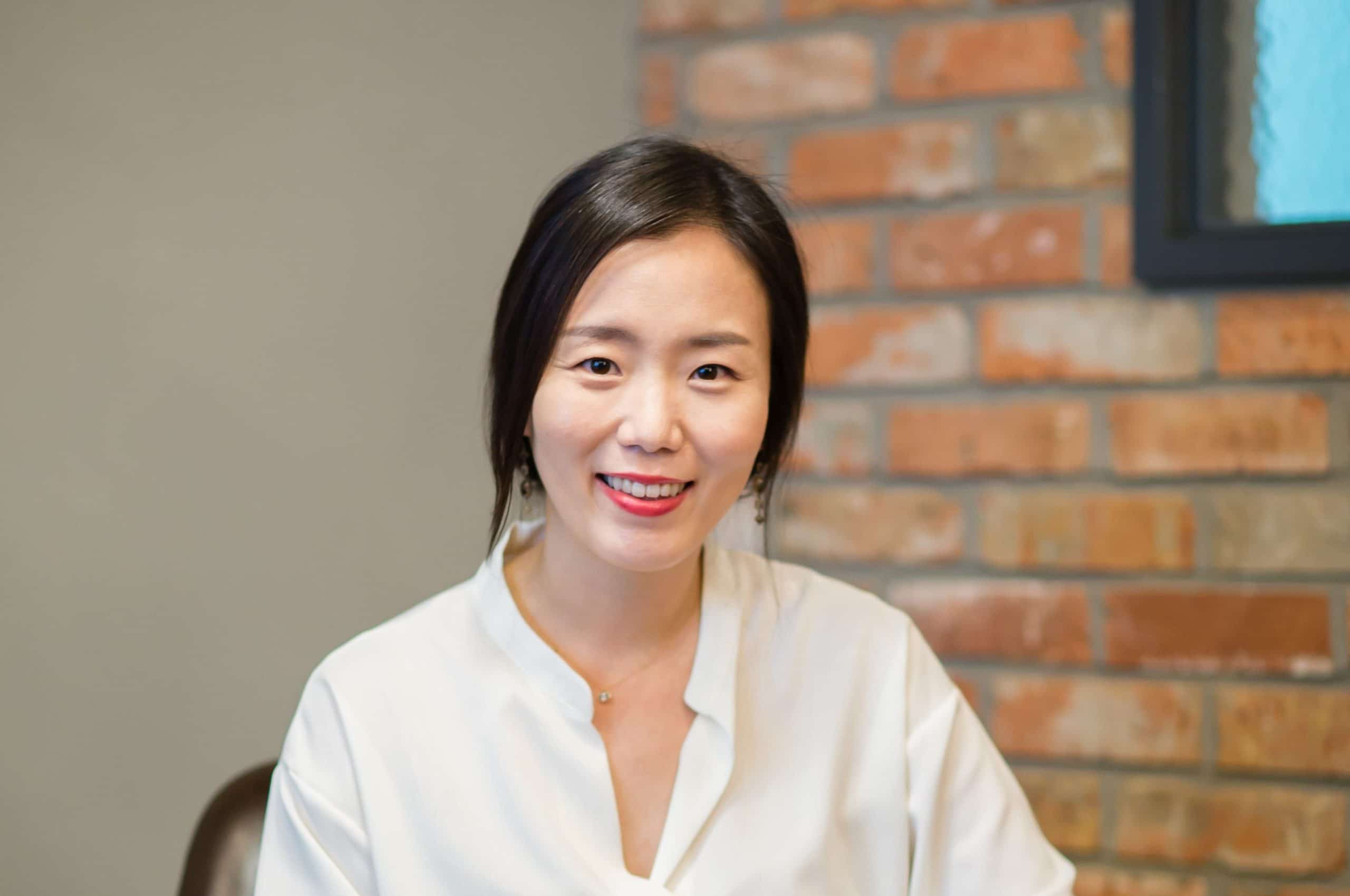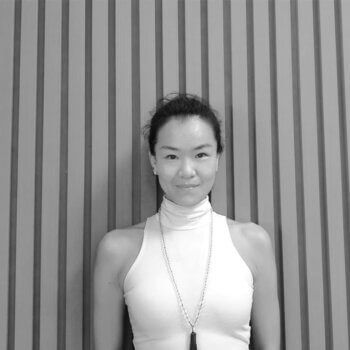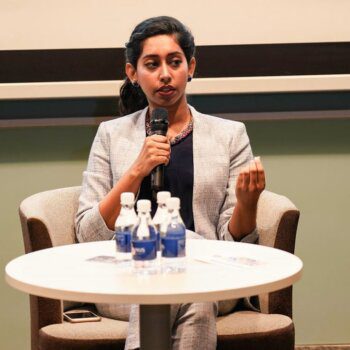(Women on Top in Tech is a series about Women Founders, CEOs, and Leaders in technology. It aims to amplify and bring to the fore diversity in leadership in technology.)
Jungeun(June) You is the founder and CEO of Mabo app, the first guided mindfulness meditation app in Korean and a certified SIY(Search Inside Yourself: Google’s renowned meditation-based leadership program) teacher. She is also the director of Wisdom 2.0 Korea and tries hard to spread mindfulness meditation worldwide. She believes that everyone should be able to practice mindfulness meditation more easily supported by our modern technology. That’s why she developed Mabo, the Korean guided mindfulness meditation app and wants to make Mabo as a globalized app converting to local languages.
What makes you do what you do? and How did you rise in the industry you are in?
In 2012, I started a doctoral course majoring in organizational psychology, leaving behind my career as an HR/Organizational development consultant. I have worked for global consulting companies like IBM GBS, Accenture and PwC in Korea for more than 7 years. During my consulting career, I had conducted several major projects mostly for big korean companies like Samsung, POSCO, and Hyundai. I was good at what I did and I thought I liked it.
But suddenly, I became passionless. I did not know the reason at first, but it had become clear and clear. I became to lose the meaning of my work. Yes, I know it sounds like a cliché. But it had been so serious to me since the reason why I chose to be an HRM/Org. development consultant was because I believed that I could change people’s lives through work. When I was a little child, I used to see that my father always came home late and looked always tired and stressful. He could not spend much time with us and looked unhappy. Since then, the biggest question in my life has been “How can people live happily?”. Therefore, I majored in Psychology in my undergraduate and looked for a job making me contribute to people’s well-being. Around that time, I realized the answer could be to help people at work (where most people spend most of their life) to be happier. So that, they can spread their happiness at home (Look at my father’s case. He was always stressful at work and made his family unhappy with him). To make this goal come true, I had worked as an HR/Organizational development consultant over 7 years after getting a master’s degree in Industrial Relations and Personnel Management at the University of Warwick.
However, it didn’t take a long time until I found it was not the right way to pursue my goal. Trying something to fix problems inside organizations (e.g. Improving HR system or restructuring organizational structure) cannot be the ultimate way of making people happier. Because people easily find imperfections anywhere unless they obtain inner peace. Even worse, people make other people’s lives miserable because they are not happy in organizations. That was the reason why I became passionless about my job and life and became depressed. One day, I finally decided to do something I had not planned before in my life. Which was, to quit the job and to start a doctoral program.
I entered an organizational psychology lab at Seoul National University expecting that I would study about how to make good leaders and good organizations. But the reality was beyond my expectation. After one month of starting my course, my professor was accused of sexual harassment by a female student who entered the program one semester earlier than me. It turned out that he was a perfect example of an abusive/toxic leader. As you imagined, I got so depressed.
By that time, I found a book related to mindfulness meditation by accident. The book was ‘Search Inside Yourself’ by Chade Meng Tan, a previous Google engineer, and a current mindfulness meditation expert. I read it overnight and became so zealous in it! The reason why I started the doctoral program was that I had wanted to develop a leadership intervention program which can really impact leaders in organizations. I believe that a good organization can be only built by good leaders. According to organizational psychologists, organizational culture is often built top-down. If leaders are workaholic, self-centered and authoritarian, subordinates under the leaders become passive, passionless and stressful. I’ve noticed the phenomenon so many times when I worked for many Korean companies. I have watched that many Korean male leaders made their subordinates’ lives so miserable without even knowing it. Therefore, making a big impact through leadership program can change leaders to be better persons seemed like the solution I was looking for. When I read the book ‘Search Inside Yourself’ by Chade Meng Tan, I shouted ‘Eureka’. There was the answer I had been looking for so desperately. It was ‘Mindfulness Meditation’! Through mindfulness meditation, leaders can cultivate emotional Intelligence which is a foundation of positive leadership.
It was October 6th in 2012, when I wrote an email to the author Chade Meng Tan asking him whether I could implement SIY in Korea. To a miracle, I got a reply from Meng and 3 months later, I visited the Google Mountain View office to meet him. Before the meeting, I had prepared a presentation deck to impress him but when I tried to show my presentation to Meng, he just set it aside and said kindly, “How can I help you?” looking into my eyes very gently. It was ‘that’ simple to persuade him to do something good for Korean people. After this meeting, I was allowed to implement an SIY pilot program in Korea and it led me to become an SIY certified teacher.
Initially, I had only thought of bringing the program to South Korea. It hadn’t occurred to me to become a meditation instructor myself. But once I was certified by the Search Inside Yourself Leadership Institute, I combined my knowledge in psychology and background in consulting to host meditation sessions at companies like Samsung and SK. Then I started a monthly meditation group at Seoul’s Google Campus called ‘GPause Seoul for Mindful Entrepreneurs’, which is still going on.
One day, after a meeting at Google Campus, an amateur app developer who was part of the group came up to me and asked if he could record my voice. He told me it was difficult for him to focus with the English meditation apps because of the language barrier, so he wanted to record me and make an app. I decided to partner with him at that moment, and we started making the guided meditation app.
Which began in winter 2015 and officially launched in August 2016 by selling lifetime memberships on South Korean crowdfunding website Wadiz. We only had an Android beta-version back then, but not only did we end up achieving 100% of our funding target within three days of launching, but we also received so many requests to create an iOS app and began working on that too. By the end of the campaign, we had achieved around 720 percent of our target — our goal was to raise 2 million won, but we ended up with over 15 million won. With that money, we created the iOS app and then changed to a subscription-based model. Last year, we did another round of crowdfunding with Kakao, where we raised over 30 million won. We reached 1,500 percent of our target.
Why did you take on this role/start this startup especially since this is perhaps a stretch or challenge for you (or viewed as one since you are not the usual leadership demographics)?
Because there were no other people who had done these kinds of things in Korea back then. I thought that it was needed by many Korean people and someone should develop it. Then, this thought came across my mind, “Why not me?”.
This question has come across my mind once again recently. Last year, I attended a 7-day silent retreat by Jack Kornfield and Trudy Goodman in Beijing. In the retreat, I could have noticed so deep pains and sufferings that we all share as Asians. While there are universal struggles that everyone can relate to, there are also some that are unique to Asian culture. For that reason, the idea of organizing a network among young Asian mindfulness meditation teachers came to my mind. I’d like to encourage them to localize my app, in their languages. There are many good English apps, but very rare localized apps. I believe that everyone should be able to access mindfulness meditation more easily in his or her mother tongues.
Do you have a mentor that you look up to in your industries or did you look for one or how did that work? How did you make a match if you did, and how did you end up being mentored by him?
After I started practicing meditation, Meng became my mentor and brother. He not only taught me meditation but also connected me with his good friends and teachers who are most well-known in this field.
Now as a leader how do you spot, develop, keep, grow and support your talent?
Through meditation practice, I could see how I’ve become a different person. It is still going on. I think it is a lifelong process. But now I know two things at least. First, ‘mindfulness meditation’ really works. Second, my business and practice cannot be separated. Every day I try to be a mindful leader and ask myself why I am doing this. I try to live in my value.
Do you consciously or unconsciously support diversity and why?
I can proudly say that I consciously support diversity, but there has been a rare chance for me to prove it at work. Though we have a part-time employee who is a mother of a 2-year-old baby working remotely with our team.
What is your take on what it takes to be a great leader in your industry and as a general rule of thumb?
I think a mindful leader means an authentic leader. I try to be ‘me’ and do my best to apply the same rules and criteria to both my team members and myself.
Advice for others?
When I decided to do something related to mindfulness meditation, I did not expect that I would make an app. Even I was not sure whether I could make a living from i I knew one thing for sure that “I will do this anyway.”
Many young and prospective women come to me asking for advice about their career. From their point of view, I may be looked so determined and courageous in changing my career from a business consultant to a mindfulness meditation teacher. But to me, it was so natural, therefore there was no doubt. If you find something that it is your calling, you will have no hesitation doing it. So, my advice for them is “if you could not decide whether doing it or not, it must not be your calling.” Please take your time to investigate inside you to find your own calling making you act on it.
If you’d like to get in touch with Jungeun(June) You, please feel free to reach out to her on LinkedIn: https://www.linkedin.com/in/jungeunyou/





























